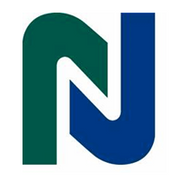What You Should Know About Home Equity Lines of Credit

Instead of taking out a second mortgage loan, some homeowners apply for a home equity line of credit (HELOC). HELOCs cover repairs or property upgrades that they otherwise couldn’t afford to pay out of pocket. If you’re considering applying for a line of credit, it’s best to enter the process with as much information as possible. While you should talk to a financial professional about your circumstances, the primer below will give you a general idea of whether this might be an option for you.
A Guide to HELOCs
How Do HELOCs Work?
Equity is the difference between the value of your home and how much you owe on your mortgage loan. A HELOC allows you to use accrued equity as collateral to access credit, which can be spent on repairs and renovations. Interest rates can vary during the life of the loan, which can be as long as 30 years in some cases. This usually entails a 10-year period during which the homeowner can withdraw money, followed by a 20-year repayment period.
Interest rates may be low at the beginning of the loan, but increase as the term progresses. You’ll also be subject to added fees, typically assessed on an annual and per-transaction basis. Understand your fee structure thoroughly before you agree to the terms of a HELOC. Many lenders are also open to negotiation on this point.
Are There Risks Involved?
 Because you’re using your house as collateral, you run the risk of losing your home if you’re unable to make payments on your HELOC, just as with a regular mortgage loan. Your interest rates may also increase. For instance, if the prime rate — a loan rate set by commercial banks and influenced by the U.S. Federal Reserve — goes up, your interest rates will likely rise. Lenders can also freeze credit lines due to missed payments or changes in your equity status, such as a drop in home value.
Because you’re using your house as collateral, you run the risk of losing your home if you’re unable to make payments on your HELOC, just as with a regular mortgage loan. Your interest rates may also increase. For instance, if the prime rate — a loan rate set by commercial banks and influenced by the U.S. Federal Reserve — goes up, your interest rates will likely rise. Lenders can also freeze credit lines due to missed payments or changes in your equity status, such as a drop in home value.
What Are the Benefits?
Interest paid on up to $100,000 can be tax deductible, provided that the line of credit was used to make significant improvements to the home. HELOCs also tend to be more flexible when it comes to rates. The majority of second mortgage loans are fixed rate, while lines of credit often have variable rates. This means your monthly minimum payments will be based on your balance during the draw period.
Making the right mortgage loan decision is crucial. Thankfully, the expert team at North Jersey Federal Credit Union is ready to help you pick the right option. They offer reasonable rates and fees to their members, whether you’re applying for a mortgage loan or simply keeping a rainy-day savings account. They also offer convenient and accessible online banking. Visit them online for more information on applying for a HELOC. Call (973) 785-9200 to speak with a knowledgeable representative in Totowa, NJ.
About the Business
Have a question? Ask the experts!
Send your question

